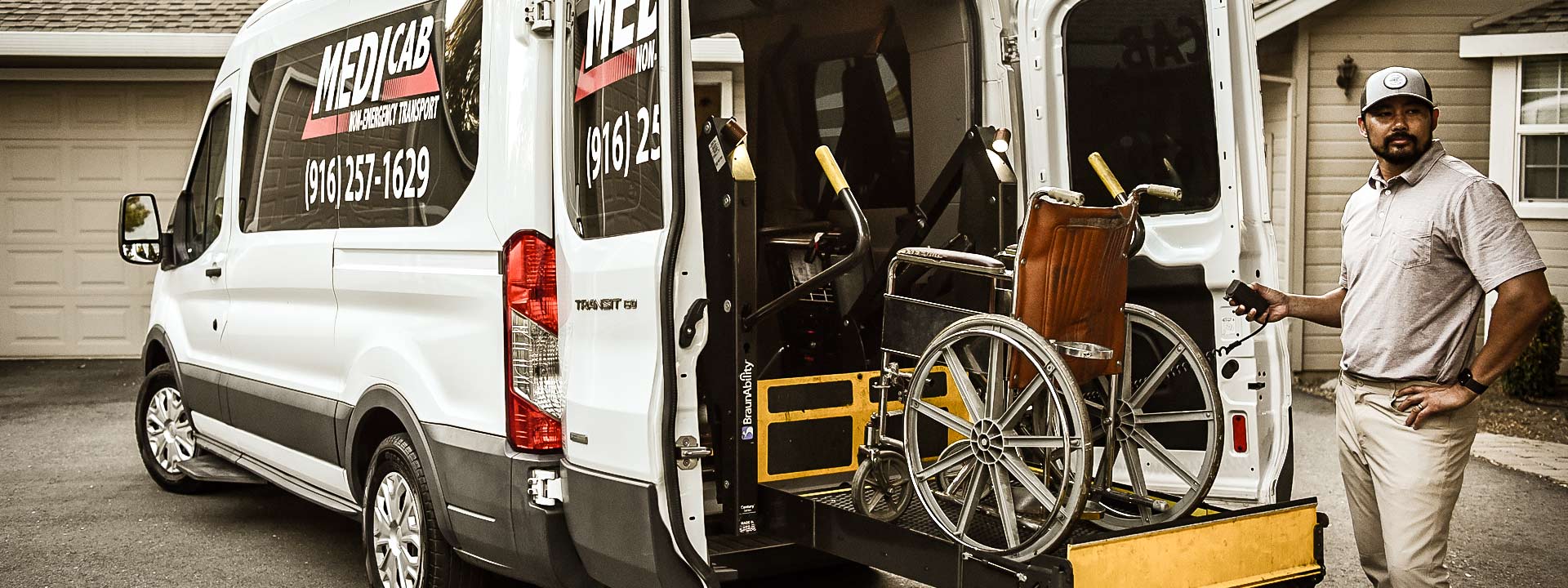Easily Accessible and Affordable Medical Transportation Options for Seamless Wellness Assistance
In the world of health care, the access and price of medical transportation are paramount in making certain people can access the treatment they require when they require it. The ability to perfectly browse transport alternatives can considerably affect an individual's capacity to obtain prompt clinical interest, follow-up care, and overall well-being. From non-emergency medical transportation solutions to cutting-edge services like telehealth, the landscape of clinical transportation is developing to satisfy the varied requirements of clients. Considering the importance of this element in health care delivery, checking out the range of alternatives available ends up being necessary for dealing with spaces in accessibility and cost.
Non-Emergency Medical Transportation Provider

These services are staffed by trained professionals who prioritize individual convenience and safety and security during transportation. Chauffeurs are equipped to handle individuals with varying medical demands and make sure that all trips are stress-free and smooth - Medical Transportation Services Near Me. Additionally, non-emergency medical transportation services commonly make use of customized lorries that are wheelchair-accessible, making them suitable for a wide variety of patients with various movement demands
Volunteer Vehicle Driver Programs
Volunteer vehicle driver programs are instrumental in supplying transport aid for people looking for non-urgent medical care. These programs count on the kindness of volunteers who donate their time and lorries to aid transport clients to and from medical appointments. By utilizing volunteer drivers, organizations can offer an affordable service for people that may not have access to reputable transportation.
One of the key benefits of volunteer vehicle driver programs is the personalized treatment and focus that people obtain. Unlike traditional transportation services, volunteer drivers usually create a rapport with the individuals they assist, developing a thoughtful and encouraging setting throughout what can be a stressful time. In addition, volunteer motorist programs can help bridge the gap for individuals living in rural or underserved locations where mass transit choices may be limited.
Public Transportation Options

One of the essential benefits of public transport is its extensive availability in city and rural areas alike. This comprehensive network permits clients from diverse backgrounds to take a trip to clinical appointments with relative ease. helpful resources In addition, mass transit systems are usually geared up to accommodate people with specials needs, providing accessible traveling choices for those with movement difficulties.

Ride-Sharing and Transportation Network Companies
The advancement of modern transportation options for medical functions prolongs past traditional public systems like buses and trains to incorporate the innovative world of ride-sharing and transportation network business. Ride-sharing solutions such as Uber and Lyft have reinvented the way people take a trip to clinical consultations, providing convenience and flexibility to patients that might not have access to their automobiles or conventional mass transit. These platforms permit users to ask for an adventure with the touch of a switch on their mobile phones, supplying door-to-door service that can be particularly advantageous for individuals with mobility obstacles or those calling for aid.
Transport network firms (TNCs) have actually likewise played a significant role in bridging the space in medical transport solutions. Companies like Veyo and RoundTrip specialize in non-emergency medical transportation, accommodating individuals who require a higher degree helpful throughout their journeys to clinical facilities. By partnering with medical care service providers and insurance companies, TNCs guarantee that people can access reliable and prompt transport services, inevitably adding to improved wellness results and individual satisfaction.
Telehealth and Digital Examinations
Enhancing medical care access and benefit, telehealth and virtual assessments have actually emerged as critical elements in contemporary medical techniques, changing the method clients interact with health care providers. This strategy not only saves time and lowers transportation expenses for individuals yet additionally enhances the general efficiency of medical care delivery.
Additionally, telehealth plays an important duty like it in extending clinical services to underserved neighborhoods, rural locations, and individuals with restricted mobility. By breaking down geographical barriers and increasing health care outreach, telehealth advertises very early treatment, continuity of treatment, and individual interaction. As technology proceeds to development, telehealth is poised to play an increasingly substantial function fit the future of medical care distribution, promoting improved health outcomes and patient complete satisfaction.
Conclusion

From non-emergency clinical transport solutions to cutting-edge services like telehealth, the landscape of clinical transport is developing to satisfy the diverse requirements of clients.Non-Emergency Medical Transportation Solutions help with the timely and secure transport of individuals requiring non-urgent medical treatment to and from medical care centers.The development of contemporary transportation alternatives for clinical objectives extends past typical public systems like buses and trains to incorporate the ingenious realm of ride-sharing and transportation network firms.Transport network firms (TNCs) have actually likewise played a considerable function in bridging the space in medical transportation solutions. Non-Emergency Medical Transport Providers, Volunteer Motorist Programs, Public Transport Options, Ride-Sharing and Transport Network Companies, and Telehealth and Virtual Consultations all play a crucial function in addressing transportation barriers to medical care accessibility.